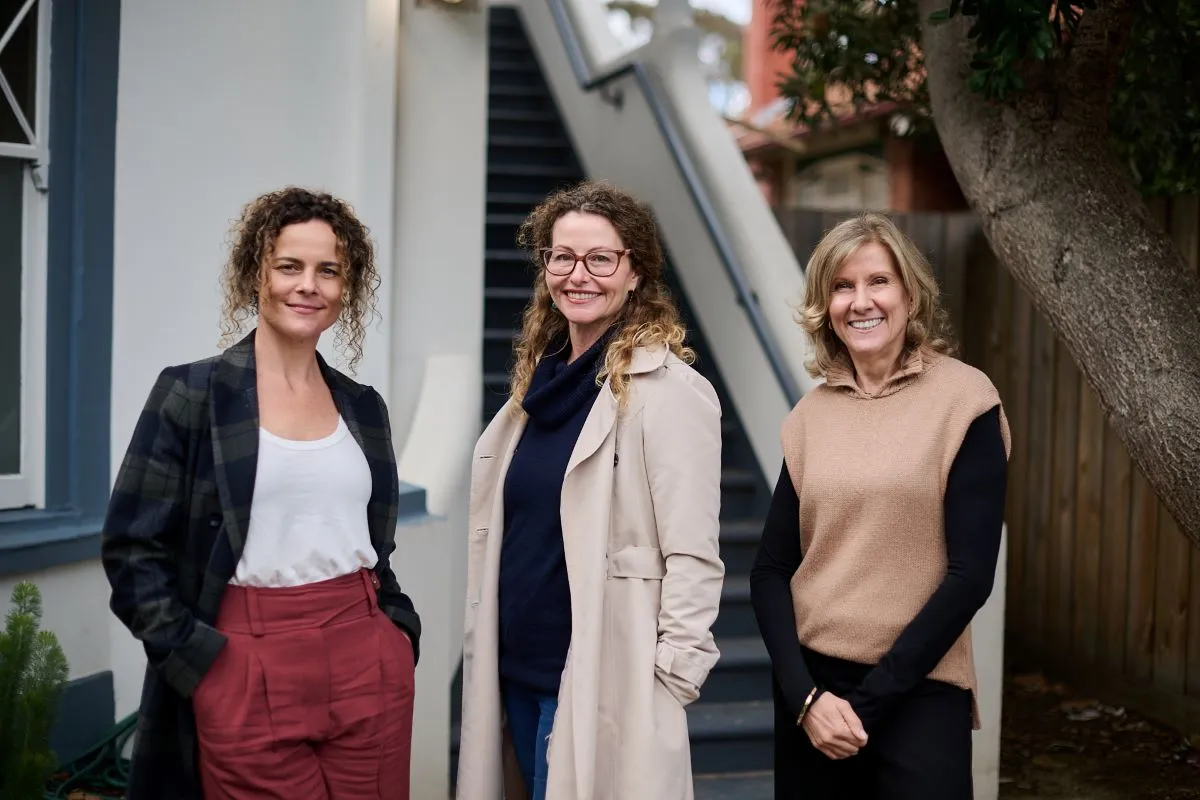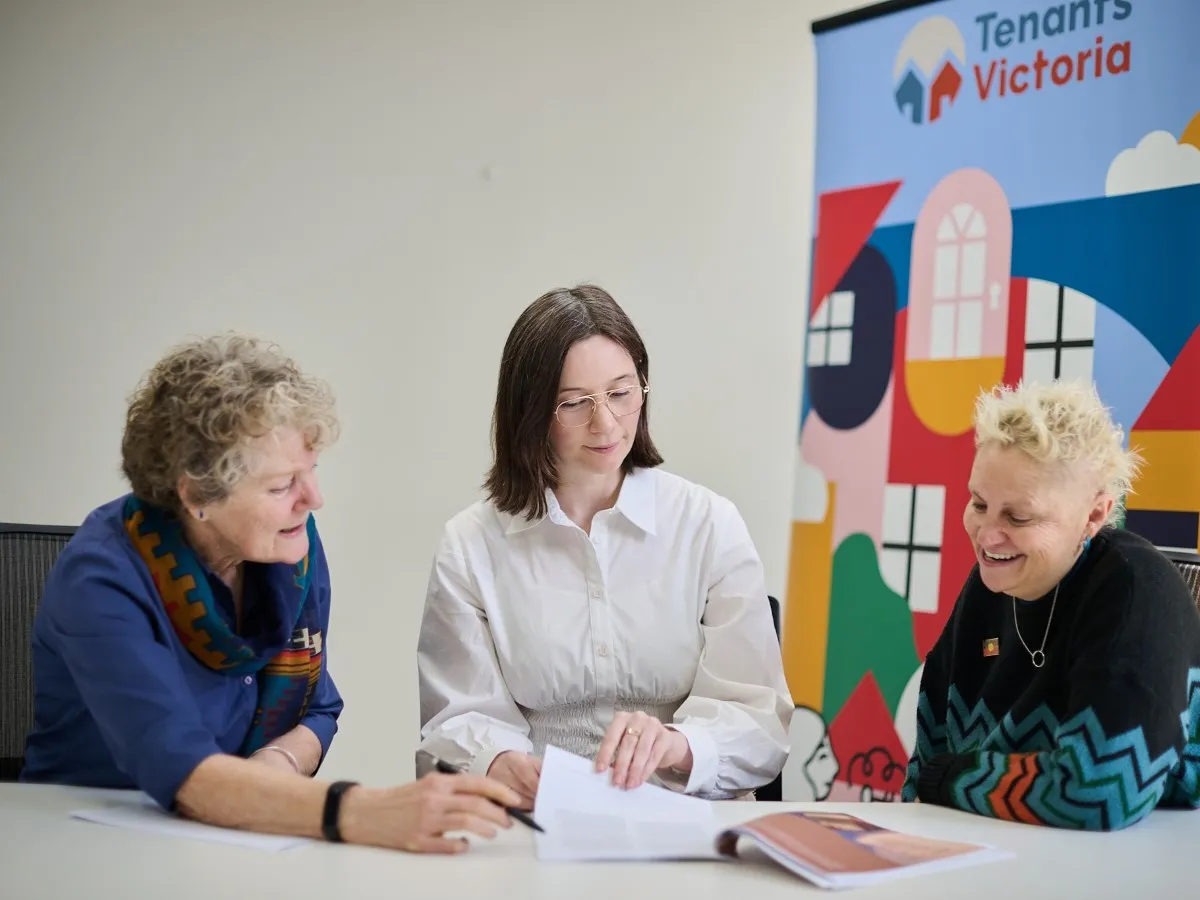Health justice partnerships: powered by people, backed by data
First Step Legal implemented data-driven practices to evaluate the effectiveness of the health justice partnership model in Victoria.

First Step Legal implemented data-driven practices to evaluate the effectiveness of the health justice partnership model in Victoria.

Health justice partnerships aim to bring together health, legal and other services to address complex problems. They may include on-site lawyers in health settings for easy warm referrals, secondary consultations to give health and social workers the right advice, or holistic wrap-around services.
First Step Legal (FSL) has been pioneering health justice partnerships in Victoria since 2008 to assist the most marginalised members of the community. While this integrated legal service assistance is considered good practice, there is limited empirical data regarding its effectiveness.
To determine the impact of health justice partnerships, FSL collaborated with the University of Melbourne’s School of Population and Global Health, Health Justice Australia and legal management software provider ActionStep. This project, which was funded by a VLF grant, will be used to inform future service design and ultimately improve the quality of legal assistance available to vulnerable Victorians.
The primary aim of the project was to identify the impact of the health justice partnership model on client wellbeing. What to measure was critical to identifying the impact of the health justice partnership model on client wellbeing.
“We needed a tool that would be easy for staff and clients to use, particularly with vulnerable clients at a stressful and difficult time in their lives.” Lisa Ward, Project Consultant, describes. “It also needed to allow for comparison between our clients and the broader population, to measure the health justice partnership’s effectiveness.”
Another key consideration of the tool was minimising the impact of data collection on clients. FSL’s model relies on lawyers building relationships with clients to work together to address their needs holistically. As difficult topics would be covered, such as drug use, homelessness, and personal wellbeing, the challenge was to collect quality data without undermining client engagement.
The Personal Wellbeing Index provided the answer; a simple 8-question measure of a person’s subjective well-being. This tool allows for benchmarking and comparison between FSL’s client cohort and the Australian population, providing data to understand the wellbeing deficits that their clients experience.
A four-phase quantitative data collection process was developed and embedded into FSL’s service provision with the help of the School of Population and Global Health and Health Justice Australia. Three qualitative data collection tools were also designed for clients, health and justice staff, and management. Importantly, First Step Legal staff contributed heavily to the development of these tools, bringing a direct practice perspective.
After the two-and-a-half-year data collection period, all the data was provided to the University of Melbourne for analysis and preparation of an academic report.
Despite the high attrition of research participants throughout the project, FSL gained a database of information that they could use to evaluate the effectiveness of health justice partnerships. These changes in key indicators of client health and wellbeing measured over time, paired with rich qualitative data gathered through client, partner and staff interviews, allowed them to draw findings and build their report on the impact of health justice partnerships.
“We found that there was a considerable increase in clients’ average score for personal wellbeing overall, with an improvement of 21% over the year in their wellbeing score.” Laura Brennan, Deputy Director, Legal Services.
At the time of the initial survey, the average overall score for the Personal Wellbeing Index of FSL clients was 56, compared to the general Australian population’s score of 75. 12 months after legal help began, FSL clients were reporting an overall wellbeing score of 68; a significant improvement of 12 points over the year.
The data generated by the evaluation captures evidence of a strong relationship between health justice partnerships and improved health and legal equity among people with complex needs. This is reinforced by qualitative feedback provided by FSL clients throughout the project.
It felt like I was being guided by both [a psychologist and lawyer], two people standing either side of me and it felt good. For the first time I felt like both my physical and my mental health were being looked after. (Client 8)
To undertake the evaluation, FSL underwent a fundamental cultural shift to become a legal practice that values empirical knowledge and data collection.
“It’s been a time-consuming and challenging process,” Laura Brennan describes. “We had to invest heavily in our internal capabilities.” FSL, with training from the School of Population and Global Health and reliance on ActionStep, undertook the design and integration of data collection into daily workflows.
These changes were not without growing pains. At some points, practitioners felt that data collection was detracting from their primary client-facing role. There was also staff turnover that disrupted the collection process. To overcome these issues, FSL modified data collection processes and responsibilities to enhance workability.
“Next time, we would do more to share data with staff throughout the duration of the project to demonstrate the value of the data set to staff,” says Laura Brennan. “It can help us understand our client needs to improve daily practice and, ultimately, enhance client outcomes.”
Despite the difficulties, FSL prizes the research and data capability they have built in staff. Having deliberately designed the project as a collaborative endeavour, FSL ensured that in-house skills to extract and analyse client data were developed, allowing for long-term research capability.
Data from the evaluation offers useful insights into the value of integrated legal help in health settings. Health Justice Australia aims to use these findings to strengthen the case for health justice partnerships across Australia, with the evidence able to support efforts to secure sustainable funding and improve service design at both State and Federal levels.
To make the research widely accessible, FSL condensed the original technical paper into a range of resources to ensure clarity for a range of stakeholders. These reports have been shared with over 130 health justice partnerships nationwide. FSL is continuing to explore engagement strategies, including a series of professional development workshops tailored to both service delivery partners and research audiences.
Lisa Ward also shared the project’s findings in a VLF Research Network, and discussed the value of integrated, person-centred legal support to better understand how the service settings impact how legal help that should be provided.
First Step Legal was established in 2008 as a health justice partnership embedded within First Step, a mental health and addiction services hub in St Kilda, Melbourne, Australia. FSL is now an accredited community legal centre, with a primary focus on criminal law, family law, family violence, fines, and victims of crime assistance matters.
You can hear Lisa Ward discuss the evaluation firsthand in our Research Network, Good law makes for better health.
The Evaluating the impact of integrated, cross sector models of legal practice project was funded by a Victoria Law Foundation Grant. If you have a project addressing a legal need that we could help fund, explore our Grants program.
Understand how Tenants Victoria used data-driven research to capture the unique experiences and challenges faced by single-parent renters in Victoria.

Northern Community Legal Centre and the Australian Muslim Women’s Centre for Human Rights unpack the range of process issues and barriers to participation faced by culturally and linguistically diverse women within Melbourne’s North-West.

Browse the reports and other outputs from funded projects.